Roof Pavers Buyers Guide for 2023
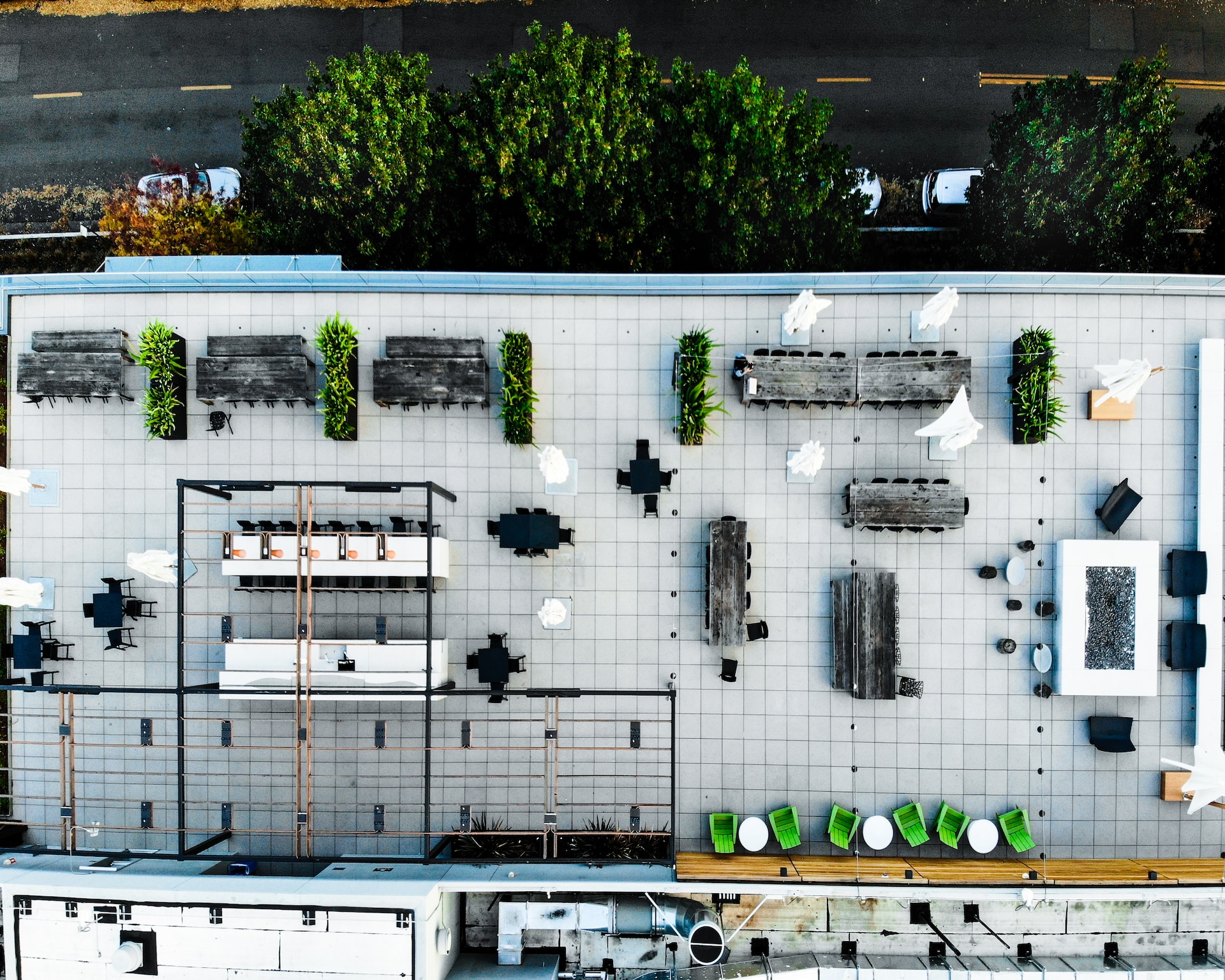

Roger Marx
Roger Marx, a distinguished BPA Advisor specializing in Landscaping & Outdoor Materials, is dedicated to sharing his extensive knowledge and expertise on the latest trending building and design products. With a keen focus on landscaping and outdoor materials, Roger contributes valuable insights that shape discussions on innovative construction practices and materials in these vibrant and essential areas.
What are roof pavers? This is a question that more businesses and penthouse owners are asking themselves. Roof deck pavers are becoming one of the most popular and common roofing solutions for homes, and this especially includes commercial settings too. Not only do these concrete pavers protect your rooftop from the elements, but thanks to the aesthetic, and the functionality, these roof deck tiles add quite a lot of value!
Above all, what makes roof pavers so special would hands-down be the fact that they can be used for a variety of applications. Just think about it, with the help of the pedestal paver system, it can be used for patios, flat roofs, decks, playgrounds, and so much more.
So why are concrete pavers or porcelain pavers such a big deal right now? Well, it's really all about creating opportunities for spaces that wouldn't be used. The roof and decks are going to offer some of the best views you can imagine, but functionality is also brought into it. Just imagine getting to have your own outdoor living space while having a view of your surroundings. It's like you're a king sitting on a throne! The same can be said for businesses, customers love great views and they're willing to pay for them, especially in major cities like New York, Atlanta, Chicago, etc.
While a lot of major cities have roof systems that can handle harsh weather conditions such as rain or snow, the pedestal support system in pavers helps with drainage while still being used as a walking surface. Overall, you can see that this provides functionality and gorgeous aesthetics. If you're completely convinced about transforming your roof into an outdoor paradise, then this roof pavers buyer guide is going to be exactly what you need! So keep reading about everything you need to know and buy so you can get started on your rooftop makeover!
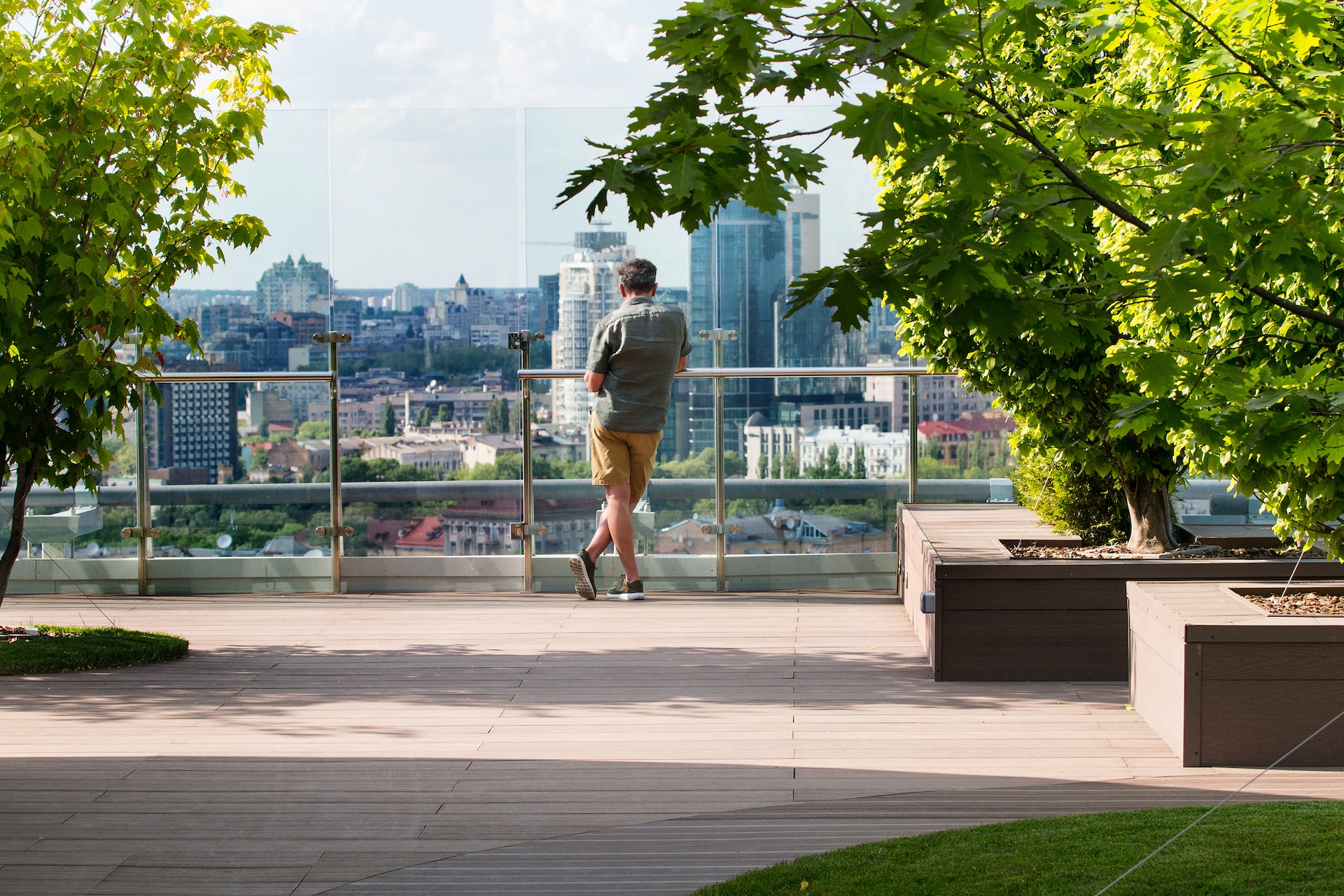
Applications of Roof Pavers
Unless you're living under a rock, you probably know about the popularity that rooftops have. They offer beautiful views of the surrounding concrete jungle, fresh air, and a different perspective that you don't get when being crammed in a small dark room. More businesses are turning their roofs into lovely little paradises that their customers can escape to. Business and property owners are essentially increasing the available square footage in the most stylish way possible all without expanding the footprint of the budling either.
So it's a win-win! So, with these transformations, it's making unused space into something functional, and it increases property values (rental value too), while also serving as an attractive selling point for customers and tenants. There are so many different applications that can be used for rooftops, thanks to roof pavers, so let's check them out!
Rooftop decks and patios
You just can't go wrong with a rooftop deck or even a patio. They're perfect for entertaining and excellent as a community space, but even for something like a bar, it's ideal. In general, getting to sit back with a glass of wine and look out at the sunset sounds pretty romantic, right? It's a great start to the evening, especially getting to slowly see all the lights in the city turn while watching from above.
Green roofs and rooftop gardens
More cities all around the world are looking into ways to make their cities greener but also friendly to pollinators. For a lot of major cities such as London, Paris, and New York, you're going to find green roofs or rooftop gardens. These are perfect for boosting air quality and even stormwater management for buildings. Not only that, but natural grass is perfect for absorbing heat. But who doesn't like a good rooftop garden, either? That little botanical touch has a way of making everything better; it's good for the soul and for the wildlife!
Walkways and access routes
Apart of city living is focusing on green methods for residents to get around. Roof pavers, particularly the pedestal support system, are ideal for pedestrians. Elevated walkways, whether you choose porcelain pavers vs concrete pavers, can be very beneficial for walkways. Additionally, they can help reduce the amount of rainwater entering a building's roof space and allow for more effective drainage by effectively channeling it away from the surface.
They all have their own distinctive strengths and capabilities, and that alone is what makes them worthy of consideration for any business or property owner to look into them, as they have the potential to improve the quality of life for residents, customers, and pedestrians.
Commercial and industrial facilities
If you're willing to think outside the box, roof pavers can be extremely beneficial to industrial facilities, especially those that are limited on space. If you think about it, you could use the top as a recreational area for employees or even have an office or storage facility there too. But if you're a business that's in something like the hospitality industry, you're especially going to benefit from this.
Customers love great views, especially a view from a roof. Having that aerial perspective just instantly enhances the customer experience. Whether it's classes, lectures, or even a bar, commercial spaces can benefit greatly from creating an area that feels welcoming and comfortable right on the roof.
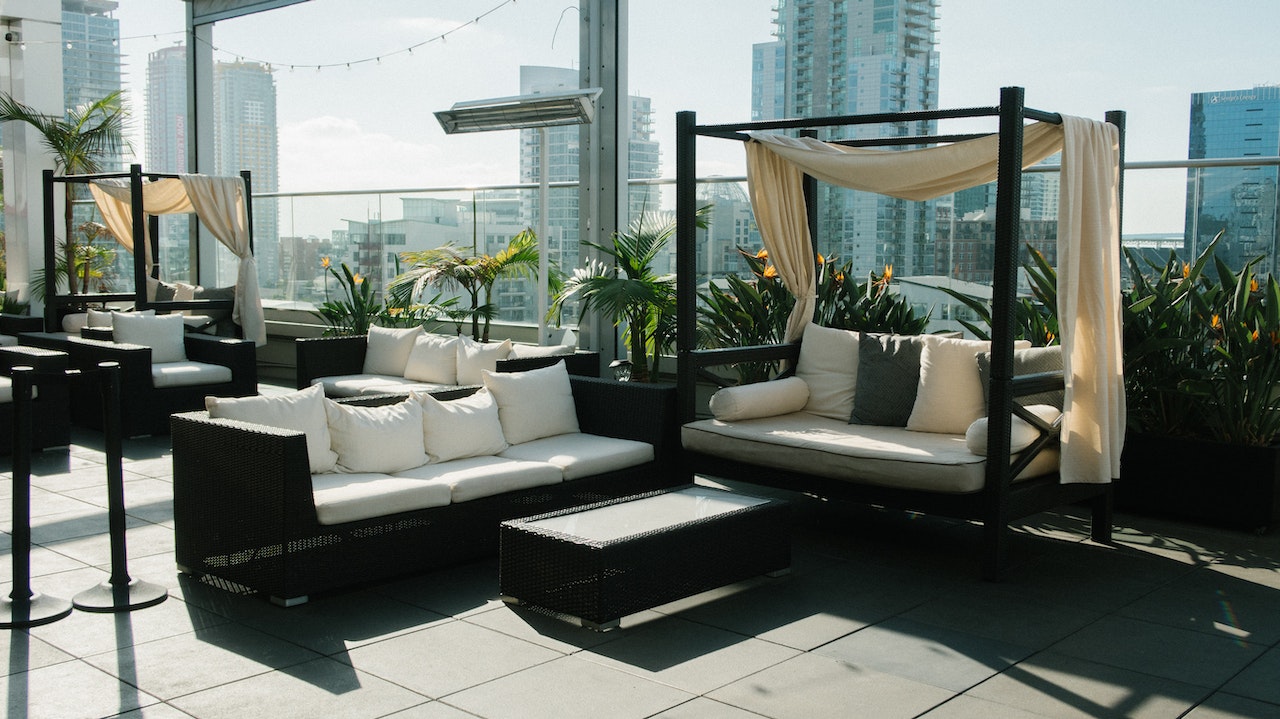
Types of Roof Pavers
There are several different types of roof pavers, and each of these is going to have its own disadvantages and pros. You can expect each one to bring something unique to the table, whether it's aesthetics, durability, or something that you know for a fact will meet up to building code standards. So before you get to shopping for the perfect pavers for your dreamy rooftop space, make sure to look at each of these types carefully so you can feel confident you're making the best choice!
Porcelain Pavers
Porcelain pavers offer a very wide range of style options, and you can count on this, including color too. If you want complete harmony, then look no further. Porcelain pavers are stain resistant, can withstand UV rays, are low maintenance, mildew resistant, as well as being fireproof too. In terms so weather resistance, you can expect that from porcelain pavers too, especially with the support system.
Porcelain Planks
The porcelain planks resemble wooden planks, but they're completely fireproof! This is a major advantage, especially for urban areas. Just like porcelain pavers, you can expect the porcelain planks to be resistant so sun bleaching, mold, mildew, fading, staining, and so much more. On top of that, you're not going to get any decay or warping like traditional wood offers. One of the main problems would be wind uplift mitigation, so protection will be needed.
Structural Wood Tiles
The structural wood tiles aren't as commonly used as a lot of municipalities restrict these due to fire coves. Plus, long-term maintenance needs to be put into account as they're suspectable to weather damage. But if you want the classic look of a rood deck with extensive support, then this could be an option. Plus, there is a small degree of wind uplift mitigation offered for this too.
Interlocking Wood Tiles
When it comes to roof pavers, interlocking wood tiles are primarily used for small spaces, as well as being a DIY product. For the most part, the tiles are fairly small, but they're easy to put together. All it really takes is a snapping solution, so it's very easy to make sure that it's completely aligned and precise. One major downside is the fact that these are not designed to have a pedestal support system, so you can't use these to cover up cables, pipes, or ducts. On top of that, a lot of municipalities restrict these due to fire codes. While they're fairly inexpensive, these aren't weather resistant, so you can expect damage such as color fading to happen down the line.
Concrete Pavers
Being well trusted for its lack of maintenance, low cost, and durability, a lot of businesses and property owners flock to concrete pavers when creating their rooftop paradise. There are unlimited colors and styles for concrete pavers, plus they're pretty resistant to weather and fire too. You can count on using these for years on end for your glamorous rooftop space. Thanks to its heavy weight, you won't need to worry about wind uplift mitigation either.

Pedestal Pavers vs. Aspire Pavers
The two biggest roof pavers out there that businesses and residents often go for would be pedestal pavers and the Aspire interlocking pavers. Let's take a look at both of them to see which is a clear winner.
Price
When it comes to Porcelain Pavers, the estimated cost of installation is going to be around $5-$10 per square foot. When it comes to Aspire Pavers, it's going to cost $8.99 per square foot, but they do have special promotions from time to time.
Installation
When it comes to installation, Aspire Pavers is made to be simple. While you could get a professional installer to do it, the entire point is to make the interlocking system so easy that everyone can install it themselves. This is something that pedestal pavers do not offer.
Difficulty
The Aspire Pavers are simple to install, as it's small pieces of plastic that need to click together. While pedestal pavers, on the other hand, have more challenges when it comes to installation, you're not expected to install this yourself; rather, professionals need to do it. It's hard to say what's difficult, as Aspire Pavers is meant to be an easy DIY job, while pedestal pavers are meant to be a job that a professional installer handles.
Cost
The main focus with Aspire Pavers would be the fact that they want to show that this is a DIY-friendly job. Since this is the case, it's showing that you'll save a lot of money by opting for the DIY project rather than spending money on materials and labor costs like you would for Pedestal pavers.
Environmental Impact
Aspire Pavers are known for its strong focus on sustainability; all of its products, including the interlocking pavers, are made up of 95% post-consumer recycled rubber and plastics.
Maintenance
Maintenance isn't challenging for either; you just need to wash them once or twice a year at most.
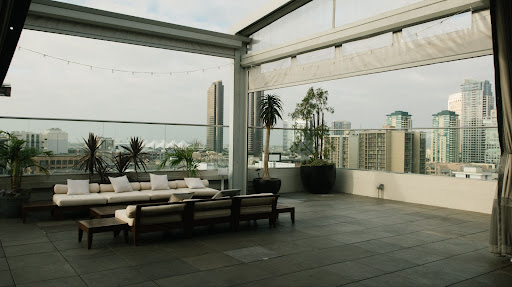
Which Roof Pavers Are Perfect for You?
Overall, what's going to matter most is getting the rooftop that you dream of. Whether you're a business or property owner, the type of roof paver you use can make a difference in cost, aesthetics, and the overall functionality of your rooftop. You're going to want to make sure you read up on all of the local fire and building codes that are required for your location. On top of this, make sure that you're picking something that works perfectly for the weather in your area. It's not only about the beauty of the rooftop, but it's all about the functionality that makes it special too!
Get Smarter About Building Products
Join 50,000+ subscribers and get our 3 min daily newsletter on what matters in the building materials industry.
You might like this
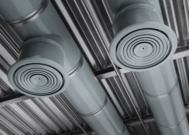

Solving Ventilation Challenges: Metal Deck Profiles and Back Draft Dampers as Key Solutions
When it comes to building design and construction, ventilation is a critical factor that often presents significant challenges. Proper ventilation is essential for maintaining indoor air quality, controlling temperature, and ensuring occupant comfort and safety. In this article, we will explore how metal deck profiles and back draft dampers are key solutions for addressing ventilation […]
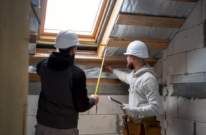

The Ultimate Guide to Home Insulation
When it comes to creating a comfortable and energy-efficient home, insulation plays a pivotal role. Proper insulation helps regulate indoor temperatures, reduces energy consumption, and enhances overall comfort. In this comprehensive guide, we’ll explore various aspects of home insulation, including the best types of insulation for different areas of your home and key considerations for […]


The Best Hidden Deck Fasteners: Concealed Elegance and Lasting Stability
Decks, those quintessential outdoor havens, serve as extensions of our living spaces, inviting us to bask in the open air. But what if we could take this experience to the next level? Enter concealed deck fasteners, the unsung heroes that elevate your deck’s appearance and structural integrity, all while keeping their existence a secret. In […]